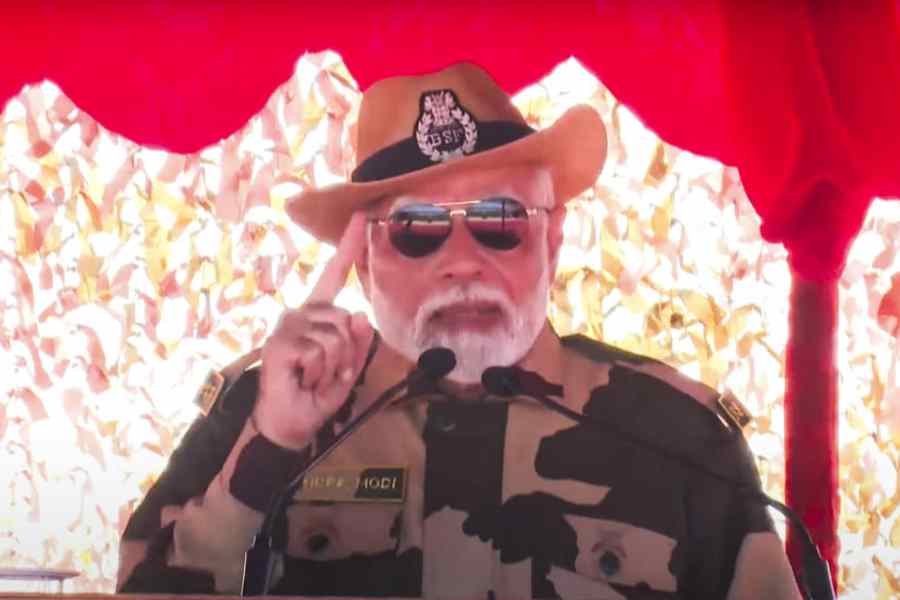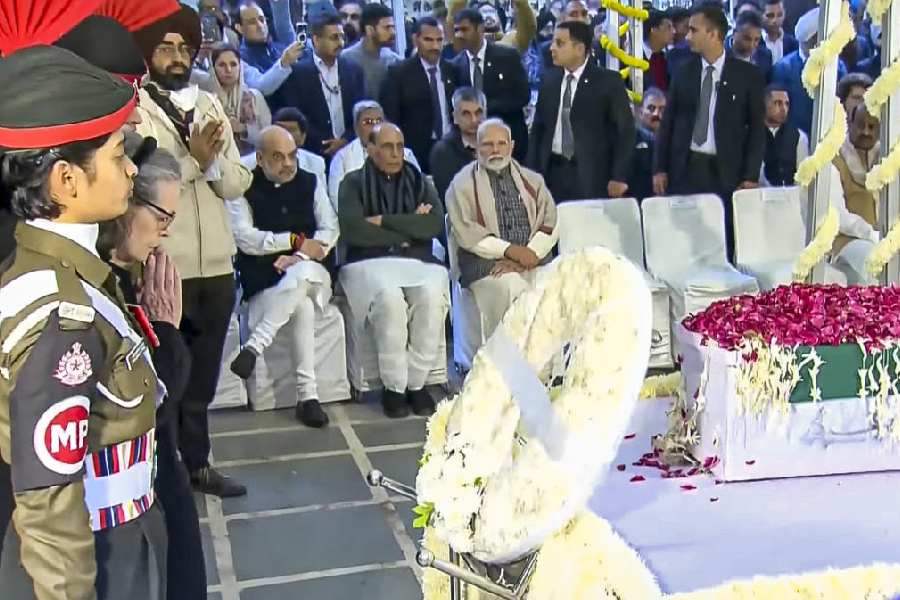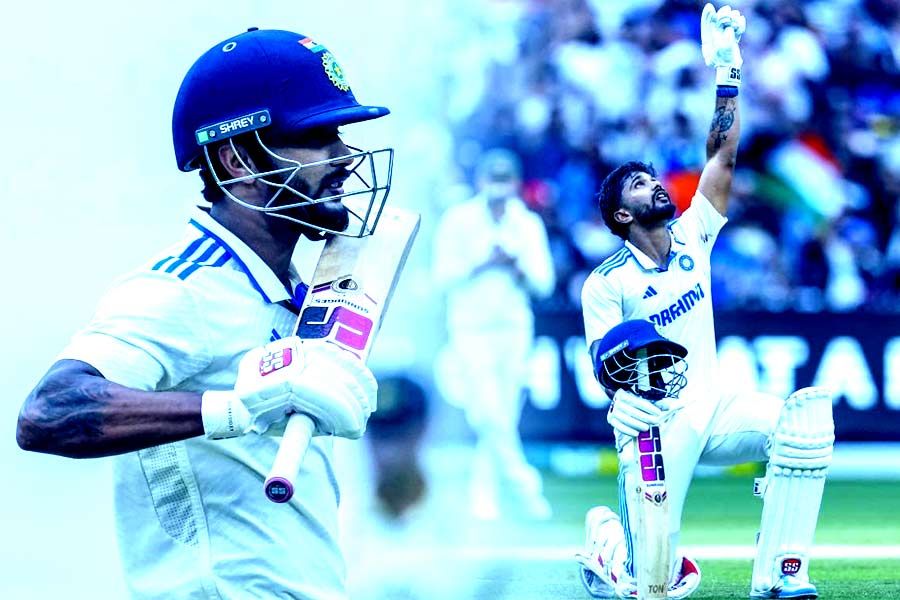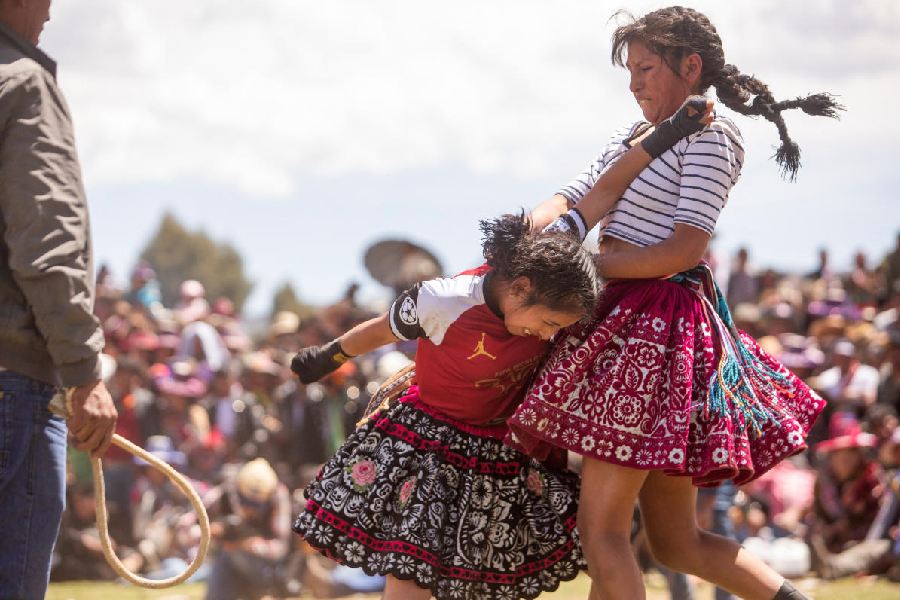The country trusts the determination of its armed forces and not the words of its enemies, Prime Minister Narendra Modi said on Thursday shortly after Indian and Chinese soldiers exchanged Diwali sweets on the frontier after completing the disengagement process.
Modi was delivering his annual Diwali address to soldiers, not anywhere close to the Line of Actual Control but in the Kutch region of his home state of Gujarat, which shares a border with Pakistan.
“Hum dushman ki baton par nahi, hamari sena ke sankalp par bharosa karte hain (We trust the determination of our armed forces, not the words of our enemies),” he said.
While referring to “enemies”, Modi made no mention of China in the context of the disengagement agreement on the flashpoints in Ladakh.
He got into self-congratulatory mode, claiming his government would never “compromise on even an inch” of India’s territory — but the statement came in relation not to Ladakh and China but to Gujarat and Pakistan, accompanied with an apparent insinuation against the Congress.
“Aaj desh me ek aisi sarkar hai jo desh ki sima ke ek inch se bhi samjhauta nahi kar sakti (Today, the country has a government that will not compromise on even an inch of its territory),” the Prime Minister told the soldiers.
Modi went on to obliquely accuse the Congress-led UPA government of plotting to give away Sir Creek to Pakistan. The 96km tidal estuary between Gujarat’s Rann of Kutch and Pakistan is a disputed area.
Modi was addressing the soldiers at Lakki Nala in the Sir Creek area.
“Today, no one can dare raise their eyes towards Kutch and Sir Creek…. There was a time when, in the name of diplomacy, an effort was being made to usurp Sir Creek,” he said, stressing that he had opposed the move as Gujarat chief minister.
Modi spent the entire day in Gujarat. Hours before addressing the soldiers, he used Vallabhbhai Patel’s birth anniversary — which the government celebrates as Ekta Divas (Unity Day) — to paint the Opposition as divisive and as an “alliance of urban Naxals”.
Addressing a crowd at Kewadiya near a statue of Patel, Modi alleged that powers inside and outside India had joined hands to weaken the country’s unity by running a disinformation campaign and trying to divide its people in the name of caste.
“Some perverted powers within and outside the country are trying to create instability and anarchy. They are targeting the (armed) forces, running disinformation campaigns. They are trying to divide in the name of caste. Their goal is to weaken India’s society and unity,” the Prime Minister said.
“They don’t want India to be developed because of their politics of ‘poor India, weak India’. So they are trying to break India in the name of the Constitution. We have to identify this alliance of urban Naxals and fight them.”
Modi did not name any party but his target was clear. The Opposition had run a “Save the Constitution” campaign during the Lok Sabha polls and has been demanding a countrywide caste census that the BJP-RSS sees as a ploy to “divide Hindu society”.
More specifically, the Prime Minister’s allegation about dividing people on caste lines appeared aimed at poll-bound Maharashtra, where caste tensions over reservation issues pose a challenge to the BJP and its allies.
The BJP is relying on hard-line Hindutva to tide it over the Maratha vs OBC quota battle in Maharashtra, where Assembly polls are scheduled for November 20.
Milking the theme of unity on Patel’s anniversary, Modi pitched his government’s efforts at bringing in “one nation, one election” and a uniform civil code.
“We brought in a ‘one nation, one tax’ system through the GST. We brought in ‘one nation, one health insurance scheme’ through Ayushman Bharat. Now, we are working towards ‘one nation, one election’ that will strengthen democracy and optimise resources,” he said.
The cabinet has cleared a proposal to have simultaneous Lok Sabha and Assembly elections across the country, and the government plans to table a bill in Parliament.
“India is also moving towards ‘one nation, one civil code’, which will be a secular civil code, as I had declared from the ramparts of the Red Fort,” the Prime Minister added.
Referring to the abrogation of Article 370, Modi said the resolution of ‘one nation, one Constitution’ had been fulfilled 70 years after Independence, with a Jammu and Kashmir government being sworn in for the first time by the country’s Constitution.
“This was our biggest tribute to Sardar Saheb (Patel). For 70 years, Babasaheb Ambedkar’s Constitution was not implemented across the entire country,” he said.











